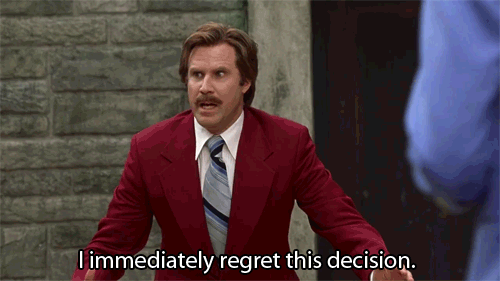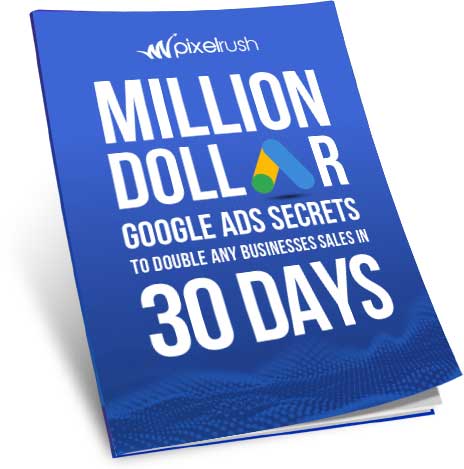It’s a fact, there’s absolutely no reason to have a website if nobody can find it online. Ten years ago we built websites to have an online presence, you got to sound cool and hip by saying your business was on the “world wide web“. But business has changed, and if you still see your website merely as that, then you’re leaving a lot of money on the table.
Not only are you losing revenue and customers to your competition, you’re leaving your business vulnerable by not embracing how future customers find and interact with your business.
Think about it, your website is available 24/7 and if built correctly, and marketed with a successful strategy like SEO, it can constantly attract, nurture and convert new leads into paying customers without you even lifting a finger.
I talk to a lot of small business owners and I’ve heard it all, things like:
- SEO is an unnecessary expense for my business
- SEO is dying due to social platforms such as Facebook
- SEO is too expensive to compete
- SEO is for big businesses not small businesses
- I’ve tried SEO and it doesn’t work
But I’m here to tell you – that could not be further from the truth.
1. Key SEO Facts You Can’t Ignore
Choosing the right online strategy for any business is an important decision – if you’re reading this article it means you’re already aware of the opportunity Google provides to your business, but you’re wondering whether it’s the right choice for your business.
Let’s start with some key stats you can’t ignore:
- 93% of online experiences begin with a search engine
- SEO leads have a 14.6% close rate, while outbound leads (such as direct mail or print advertising) have a 1.7% close rate
- Inbound leads cost 61% less than outbound leads. For example, an inbound lead might be from search engine optimisation and an outbound lead might be from a cold call.
- 81% of shoppers conduct online research before making big purchases.
- 72% of consumers who did a local search visited a store within five miles.
In fact, a survey conducted by BrightLocal at the start of 2015 highlighted that of all businesses surveyed, 20% of businesses found SEO to be the most effective channel for attracting new customers. Amazingly SEO was second only to word of mouth, the holy grail of small business marketing.

Over the years I’ve spent thousands of hours optimising sites and developing online businesses and I would be as bold to say that 60-70% of all leads generated for my clients come through organic Google or via a paid Google AdWords campaign.
Sure, you might say that my view is slightly bias, because I don’t actively manage social campaigns, but many of my clients still have active social campaigns while I’m working with them.
The truth is that for most local businesses, social visitors simply doesn’t convert at the same rate as those from Google.
2. SEO Provides Exponential Growth
While an SEO campaign is unlikely to generate game-changing results overnight, the longer you invest in SEO, the higher the returns you’ll see. The only exception here is that your execution has to be effective which demands experience and knowledge.
Although SEO campaigns typically have a period of latency, i.e. a delay in noticeable results, the exponential growth potential is huge and over time the increase in volume of leads / sales will help you achieve significantly lower acquisition costs when compared to other channels.
Part of the problem is that most owners are fixated on a small number of high competition keywords and fail to see the big picture. What you eventually will realise is that your customers are in different stages of the buying life-cycle and the variations in search terms they use to research and find a business like yours is significant.
The aim of your website is to create content that attracts targeted customers at all stages of the buying life cycle. With content you can target an unlimited number of search terms for customers at each stage:
- Awareness Stage – discovery of your website in search engines
- Consideration Stage – comparison of products: yours versus your competitors’
- Preference Stage – development of your brand as a preference to solve their problem
- Purchase Stage – purchasing from your brand (most businesses focus on this stage)
- Repurchase Stage – development of brand trust to encourage purchasing again
Remember that not every customer is ready to purchase right now – while it’s important to focus on ready-to-buy visitors, you don’t want to ignore the critical searches your customers are using which lead to a buying decision.
3. SEO Is Cost Effective
The business owners I speak to are cautious, and rightfully so, about investing higher amounts in SEO. They see it as an expense due to under-performing campaigns and negative experiences wasting thousands of dollars with poor quality agencies.
SEO is intangible too, which means it’s only once you see the impact on your business that you begin to understand its value. Price, or the lowest price, regularly becomes the only consideration rather than the value it can provide when executed effectively.
Most business owners know why they need SEO but more often experiment at the bottom end of the price spectrum, only to become stressed and badly out of pocket. Remember, cheap SEO is almost always more expensive in the long run.

But, SEO doesn’t have to be expensive either. For small businesses, local SEO can be an incredibly cost-effective form of online marketing – but for some reason, it’s a strategy more often ignored. By targeting local less competitive search terms, you can place your business on the first page within a few weeks, sometimes overnight.
These terms still have significant commercial value. Although the traffic volume is often lower, targeting less competitive local search terms can make your campaign profitable quickly, which in turn gives you the ability to reinvest and tackle higher competition / higher return search terms.
4. SEO Converts At Higher Rates
You see, search visitors are an intent-based audience which means every visitor that conducts a search in Google has the intent of finding an answer or solution to their problem. It’s this fact alone that differentiates it so significantly from social platforms and why I frequently see organic conversion rates in the 10% to 15% range for client SEO campaigns.
That’s 1.5 leads for every 10 visitors to your website.
Our ability to understand the intent of a search allows you to attract more targeted visitors to your brand. For example, we know that someone searching for “plumber Chadstone” means someone is interested in a local plumber in the area of Chadstone and therefore the conversion rates when targeting that search term are likely to be very high.
When compared to Facebook, this is not possible – Facebook is more about branding and awareness so that when a customer does need a plumber they remember your brand and to contact you.
5. SEO Allows Future Customers To Find You
Your website is the modern way for customers to find your business; customers are no longer using the Yellow Pages or reading adverts in the local newspaper – they are searching for businesses, just like yours, in Google every single day.
Think about the last time you had to find something, I’m 99% sure you went to Google first, and your customers are doing exactly the same. I’m on social media a lot, more often than I should be, but I don’t use it in the same way that I use Google.
As a customer, the purpose of Google is to find an answer, do research and compare products and it’s the first place I’m going to look to find a local business to help me. For that reason there are very few, if any, other digital channels that allow you identify and target ready-to-buy customers in the way Google lets us do.
6. SEO Makes Small Business Competitive
The big advantage that online business has now created is that small businesses can now take on bigger established businesses and win. While cost still does play a part, what you should be more concerned with is having the right strategy and the right people in place.
The aim of the game in the short term is to turn $1 dollar into $2; when you know your campaign is profitable, you simply need to ask the question – “how can I spend more?”

Small businesses can be successful against big businesses if you are:
- producing high quality content
- targeting customers at different stages of the buying life cycle
- implementing local SEO and targeting less competitive terms
- focusing on user experience and offering value
- making your site really fast
The highest rank doesn’t go to the brand with the most money, but instead goes to the business that understands and deploys effective SEO techniques. Having the right people and strategy to help you is key – if you try to amplify the wrong strategy then you’ll only waste your money.
Still Considering SEO For Your Business?
If you’ve made it this far and you’re still unsure about whether SEO is a good fit for your business, then the best thing you can do is reach out for a chat. We’ve optimised countless campaigns and with no lock-in contracts and a 90-day performance guarantee, you know that you’re in safe hands.
I’ll happily provide you with a free review of your digital strategy and highlight how we can improve the revenue of your SEO in the next 90 days. Throughout this process we can discuss your business in detail, finding out what your average customer is worth to you and how many customers you’d need to generate each month for your campaign to be profitable.
If you want to chat, contact us now and speak to either myself or one of the team about how we can help you.


